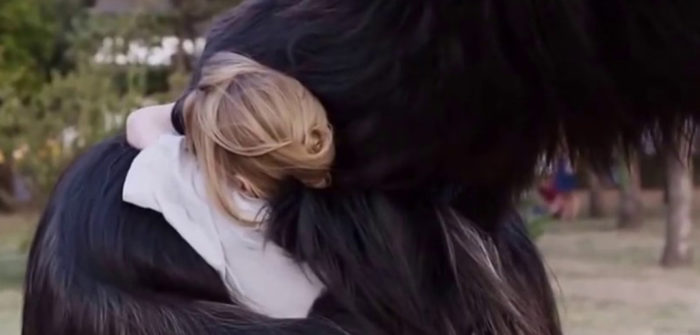by Chris Feil
Maren Ade’s Toni Erdmann is one of the decade’s most exacting looks at depression and the human cost of the global corporate mindset. These two thematic points of view ebb and flow in and out of one another in the film as suddenly as the film’s comedy and tragedy do, showing the malaise of how we live today that’s symptomatic of impersonal capitalistic remove. It’s a state of being that is symbiotically personal and societal, desperately funny and deeply sad.

Ade captures this in the antiseptic international business meetings taken by Sandra Huller’s Ines. It’s a vague playground that she operates within in humbling seriousness and her father, Peter Simonischek’s Winnifred, undermines by infiltrating as a clown to reveal their inherent silly pointlessness. Personal pain comes in their shared baggage, largely unspoken. The corporate sterility around them is so blandly, laughably gauche, and only exacerbates the isolation of both, like when Capital Cities’ “Safe and Sound” pumps in the speakers of a conference event as they share a silent moment. It’s a song engineered for commercials to sell us things, and Ines and Winnifred look entirely alone as it blares around them.
But one of the film’s signature scenes comes even more musically pronounced. In an attempt to either humiliate her or ignite her sense of self, Winnifred forces Ines to sing Whitney Houston’s “The Greatest Love of All” for a room of strangers. Ines, ever victim to her subservience, obliges for a pitchy rendition that nevertheless becomes accidentally soul-baring.
In perhaps the most easily graspable way, this scene illustrates how Ade achieves balance between humor and pain. We laugh because of the bum notes, the patient but unmoved acceptance of her audience, the knowing feeling of shared embarrassment we feel in our gut. But Ade also moves us in how Ines ultimately gives in to the yourning of the song, finding herself in the song’s people “searching for a hero” and allowing herself to feel something for once. Maybe she finally finds some momentary hope in the song, but it’s ultimately fleeting.
It feels intentional that Ines sings a song by Whitney Houston, herself an artist plagued by depression and an industry’s expectations of her. “The Greatest Love of All” is also one of the most intentionally uplifting songs in the pop lexicon, earnest to the point that we take it as some kind of self-help pop anthem. For depressives like Ines, it instead only illuminates the distance between its optimism and her reality.
Lyrically the song carries some subtext for this father and daughter, its poetry of children in search of heroes to look up to stirring up images of doting parents and their well-adjusted offspring. Perhaps Winnifred’s selection of the song is an admission of their stunted connection, acknowledging both of the emotional support they can’t ever find in one another. Either way, the song feels like the first time both of them are speaking in the same emotional language at the same time, if only for a few minutes.
All Soundtracking installments can be found here!